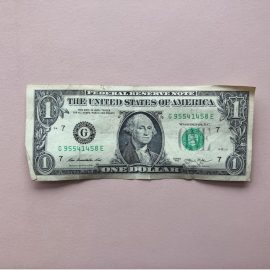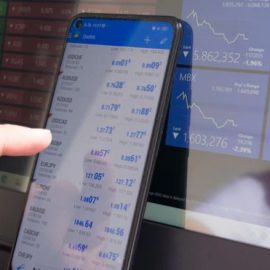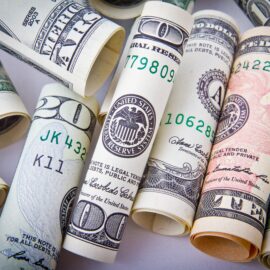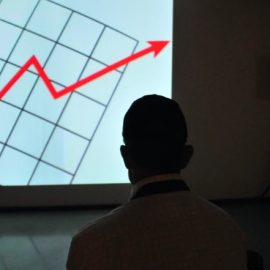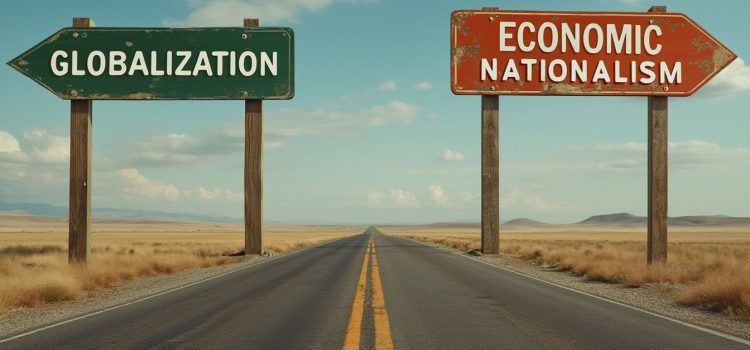
This is a free excerpt from one of Shortform’s Articles. We give you all the important information you need to know about current events and more.
Don't miss out on the whole story. Sign up for a free trial here .
What does economic nationalism mean for America’s future? How might this shift in economic policy affect your daily life?
Economic nationalism is reshaping both US politics and global trade relationships. From manufacturing to consumer prices, this growing movement impacts everything from job markets to the cost of everyday goods.
Keep reading to discover how this pivotal economic shift could transform America’s position in the global economy and what it means for your wallet.
Economic Nationalism
Economic nationalism became a central issue in the 2024 US presidential race, challenging decades of globalization-focused policies. Both major political parties embraced aspects of economic nationalism but with different approaches and degrees of implementation. The next administration faces a pivotal choice that will significantly shape US economic policy and international trade relations.
We’ll explore what economic nationalism is, who supports it, who opposes it, and how it might shape US policy.
What Economic Nationalism Is
Economic nationalism prioritizes a country’s own economic interests through policies that protect and promote domestic industries over global market considerations. Key aspects of economic nationalism include:
- Robust government intervention in the economy to safeguard and promote national economic goals.
- Protectionist measures, such as tariffs and quotas, to shield home-grown industries from overseas rivals.
- Support for domestic industries through financial aid or incentives to boost domestic companies’ global competitiveness.
- Control of resources and industries vital for national security and prosperity.
- Emphasis on self-reliance through bolstered domestic capabilities and reduced dependency on foreign economies.
| The Danger of Protectionism In Naked Economics, Charles Wheelan writes that people sometimes decide globalization is the source of their problems and rebel against it, demanding protectionist policies to shield themselves from foreign competitive pressures. When a government institutes protectionist policies, it puts up barriers to trade. These can be in the form of taxes, tariffs, quotas, regulations, or sanctions. These barriers keep foreign goods and services out of a country, thereby protecting the country’s own industries from competition. However, domestic firms protected from competition have few incentives to innovate, increase productivity, or lower prices, and consequently, economies with many protectionist policies in place typically grow stagnant and expensive for consumers. |
Economic Nationalism in History
Economic nationalism emerged in the 19th century to protect weaker economies against industrial giants. It gained traction after the 1929 economic crisis and spread post-World War II amid economic turmoil and rising nationalism.
Countries implemented economic nationalism through various government interventions, including state control of industries, tariffs, and a push for self-sufficiency, with approaches varying by nation and sector. But, as global trade expanded, maintaining purely national economies became increasingly challenging.
The 21st century has seen a resurgence of economic nationalist ideas, particularly in response to globalization and the 2008 financial crisis. The effectiveness of economic nationalism remains hotly debated in today’s interconnected global economy.
Economic Nationalism Now
Economic nationalism’s revival is transforming both the US and global economic landscapes in the following key ways:
- Industrial strategy. Countries are pushing for self-sufficiency, prioritizing domestic sectors. For example, the US is focusing on key industries such as chip manufacturing in response to China’s economic competition.
- Trade patterns. As major economies like the US adopt nationalist policies, global trade is being disrupted. This could lead to a more fragmented world economy with new trade barriers.
- Consumer costs. Economic nationalist policies, such as higher tariffs and reduced foreign competition, could lead to increased prices for consumers.
- Policy shift. There’s a marked departure from post-World War II liberal economic policies, with national interests increasingly prioritized over global cooperation.
- Diplomatic challenges. Nations face a delicate balancing act between implementing nationalist economic policies and maintaining crucial international alliances.
Supporters of Economic Nationalism
Economic nationalism has gained support across the political spectrum, with prominent figures advocating various approaches to these policies:
- Public opinion. American voters across party lines have shown significant support for economic nationalist policies, with national survey data indicating that many favor increased import restrictions and view countries such as China as economic threats.
- The Biden-Harris Administration embraced aspects of economic nationalism through initiatives such as “Build Back Better” and “Investing in America.” This approach prioritized development, including infrastructure investment, onshoring critical industries, and strengthening US manufacturing. The administration aimed to bolster the domestic economy while maintaining international alliances but put off new trade agreements until national economic goals are met.
- Donald Trump promoted economic nationalism through tariffs and his “America First” agenda during his first term. As the Republican presidential nominee in 2024, he attempted to balance economic nationalism with traditional GOP pro-business policies.
- JD Vance. Vance represents a growing faction within the GOP that embraces economic nationalism. His support for tariffs, skepticism of free trade, advocacy for government intervention in key industries, and emphasis on protecting American workers mark a significant departure from traditional Republican free-market ideology.
(Shortform note: In July 2024, JD Vance appeared as a guest in an episode of The Ben Shapiro Show. He discussed his unconventional economic positions, which favor protectionism and industrial policy over traditional Republican free market conservatism. In alignment with Trump, he advocated for tariffs, subsidies, and regulations to aid domestic manufacturing.)
Opponents of Economic Nationalism
Despite the growing influence of economic nationalism, several key groups and individuals from across the political and economic spectrum remain skeptical or opposed to these policies:
- Chamber of Commerce and Business Roundtable. These corporate interest groups reject key aspects of economic nationalism such as Trump’s trade policies and immigration crackdown, viewing them as harmful to free markets.
- Corporate-minded Republicans. These party members fear losing the ability to influence and moderate Trump’s more disruptive economic nationalist policies such as tariffs, seeing them as contrary to free-market ideals.
- Top Republican donors. Some major GOP contributors have indicated unease with the party’s shift toward economic nationalism, privately expressing concern that populist policies such as trade barriers and industrial subsidies could harm business interests and economic growth.
- Larry Summers. The former Treasury Secretary has criticized the Biden administration’s economic nationalism, arguing that manufacturing-focused policies and trade protectionism are misguided, potentially inflationary, and less effective at improving living standards than traditional free-trade approaches.
(Shortform note: In a June 2024 episode of Rachel Maddow Presents: Déjà News, Larry Summers called Trump’s idea to use tariffs instead of income taxes potentially the worst macroeconomic policy in US history. He suggested the tariff levels that would be needed to replace even half of income tax revenue would be six times higher than the Smoot-Hawley tariffs, potentially leading to economic catastrophe.)
What’s Next
With the transition to a new administration and Congress, economic nationalism’s trajectory remains uncertain. While some experts argue that targeted industrial policies could strengthen the US economy without harming global trade, others warn of growing fragmentation in international markets. These conflicting viewpoints highlight the pivotal decision facing the next administration, whose policies will shape whether the US leads a new era of strategic protectionism or returns to championing global economic integration.

Want to fast-track your learning? With Shortform, you’ll gain insights you won't find anywhere else .
Here's what you’ll get when you sign up for Shortform :
- Complicated ideas explained in simple and concise ways
- Smart analysis that connects what you’re reading to other key concepts
- Writing with zero fluff because we know how important your time is

